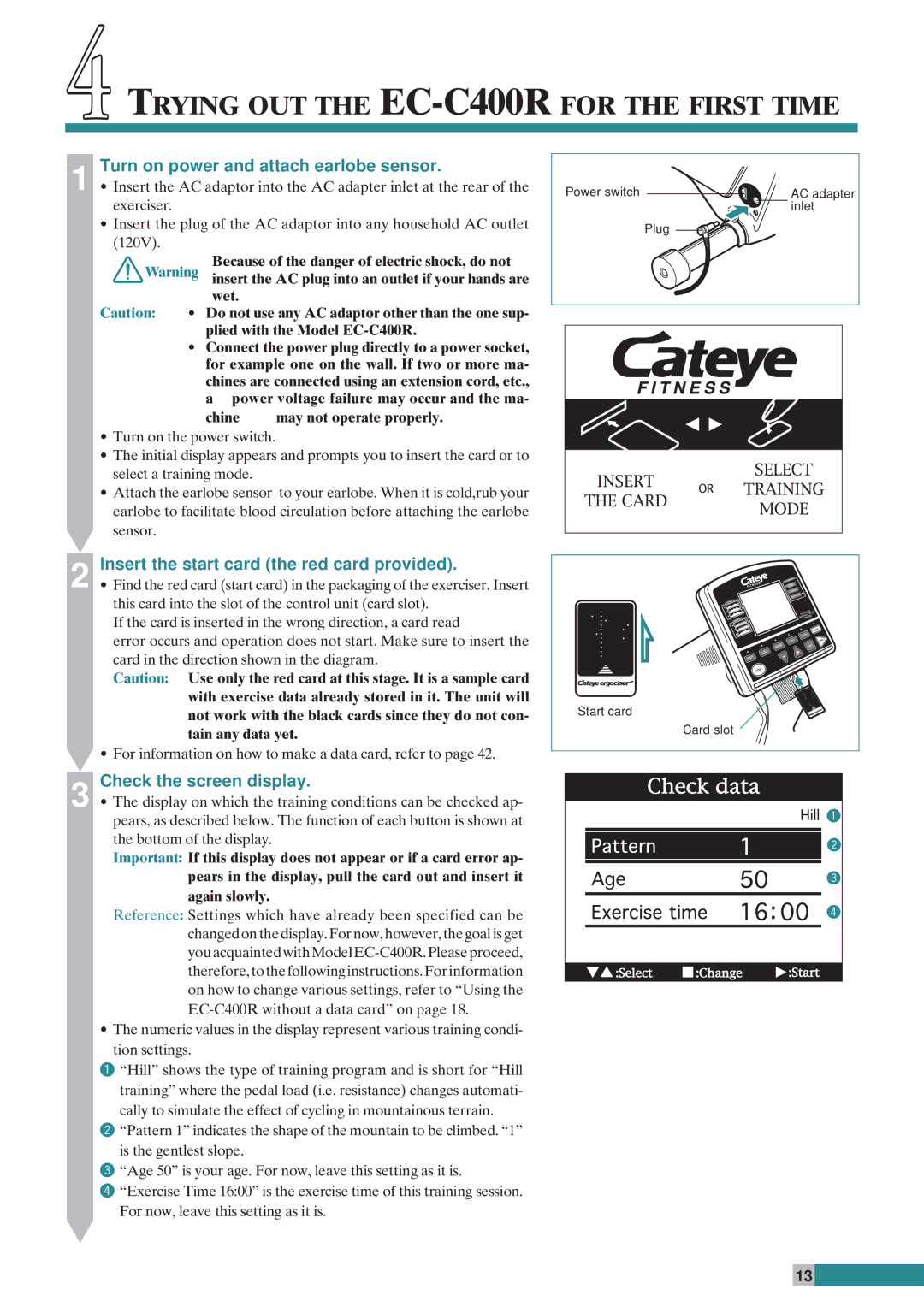
4 TRYING OUT THE EC-C400R FOR THE FIRST TIME
Turn on power and attach earlobe sensor.
1 ¥ Insert the AC adaptor into the AC adapter inlet at the rear of the exerciser.
¥Insert the plug of the AC adaptor into any household AC outlet (120V).
Power switch | AC adapter |
| inlet |
| Plug |
![]() Warning
Warning
Caution: ¥
¥
Because of the danger of electric shock, do not insert the AC plug into an outlet if your hands are wet.
Do not use any AC adaptor other than the one sup- plied with the Model
Connect the power plug directly to a power socket, for example one on the wall. If two or more ma- chines are connected using an extension cord, etc.,
apower voltage failure may occur and the ma-
chine | may not operate properly. |
¥Turn on the power switch.
¥The initial display appears and prompts you to insert the card or to select a training mode.
¥Attach the earlobe sensor to your earlobe. When it is cold,rub your earlobe to facilitate blood circulation before attaching the earlobe
sensor.
2 | Insert the start card (the red card provided). |
¥ Find the red card (start card) in the packaging of the exerciser. Insert | |
| this card into the slot of the control unit (card slot). |
| If the card is inserted in the wrong direction, a card read |
| error occurs and operation does not start. Make sure to insert the |
| card in the direction shown in the diagram. |
| Caution: Use only the red card at this stage. It is a sample card |
| with exercise data already stored in it. The unit will |
| not work with the black cards since they do not con- |
| tain any data yet. |
| ¥ For information on how to make a data card, refer to page 42. |
|
Check the screen display.
3 ¥ The display on which the training conditions can be checked ap- pears, as described below. The function of each button is shown at the bottom of the display.
Important: If this display does not appear or if a card error ap- pears in the display, pull the card out and insert it again slowly.
Reference: Settings which have already been specified can be changed on the display. For now, however, the goal is get youacquainted with Model
¥ The numeric values in the display represent various training condi- tion settings.
1 ÒHillÓ shows the type of training program and is short for ÒHill trainingÓ where the pedal load (i.e. resistance) changes automati- cally to simulate the effect of cycling in mountainous terrain.
2 ÒPattern 1Ó indicates the shape of the mountain to be climbed. Ò1Ó is the gentlest slope.
3 ÒAge 50Ó is your age. For now, leave this setting as it is.
4 ÒExercise Time 16:00Ó is the exercise time of this training session. For now, leave this setting as it is.
1
2 |
| ATE |
|
| OPER PRESS |
3 | TONUALLY K" | |
| MA | "QUIC |
1 |
|
|
2 |
| K |
|
| QUIC |
| 3 |
|
START
MODE
STOP
Start card
Card slot
1 |
2 |
3 |
4 |
13 ![]()
